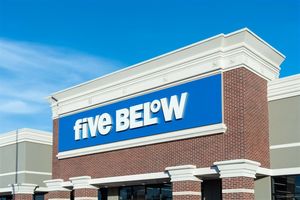
On a day when the U.S. stock market surged, with all major indices closing higher and approaching record levels, mobile technology company AppLovin (NASDAQ: APP) found itself in an unenviable position as a notable underperformer. While the S&P 500, Dow Jones Industrial Average, and NASDAQ Composite all posted significant gains on October 20, 2025, AppLovin's shares experienced a considerable decline, signaling deep-seated concerns among investors.
This divergence highlights a growing chasm between the overall market's optimism and the specific challenges facing companies grappling with increasing regulatory scrutiny and product integrity issues. AppLovin's significant drop, ranging from 1.1% to 4.56% according to various reports, underscores the severe impact that ongoing investigations and allegations can have, even in a buoyant economic environment.
Detailed Coverage of the Event
The underperformance of AppLovin (NASDAQ: APP) on October 20, 2025, was not an isolated market anomaly but rather the culmination of several serious allegations and ongoing investigations. At the forefront are reports from the New York Post indicating that multiple state attorneys general, including those from Delaware, Oregon, and Connecticut, have initiated preliminary probes into AppLovin's data collection practices. These investigations, reportedly commencing in March and extending through the summer, are scrutinizing how the company handles and utilizes consumer data, raising fundamental questions about privacy and compliance.
Adding to the company's woes, AppLovin is also reportedly under investigation by the Securities and Exchange Commission (SEC). This federal probe centers on allegations that the company may have misled investors regarding its data collection and ad-targeting methodologies. These claims were initially brought forward by short-sellers, whose skepticism appears to be gaining traction with regulatory bodies. The dual pressures from state and federal investigations create a significant overhang for AppLovin, casting a shadow over its operational transparency and investor relations.
Further compounding the company's troubles was the recent discontinuation of its "Array" product. This decision followed serious allegations that Array was installing applications on users' phones without explicit consent. Ben Edelman, a researcher holding a short position in AppLovin, was instrumental in bringing these claims to light. The shutdown of a product under such circumstances not only impacts AppLovin's revenue streams but also severely damages its reputation and raises questions about its product development and ethical standards.
The scrutiny intensified with public allegations from prominent short-selling firms. Fuzzy Panda, for instance, accused AppLovin of data theft from Meta Platforms (NASDAQ: META) and exploiting consumer data in ways that potentially violate app store policies. Separately, Culper Research raised alarming national security concerns, pointing to AppLovin's potential ties to China. These wide-ranging allegations, from data misuse to national security risks, have fueled investor apprehension, leading to the stock's significant decline despite a generally optimistic market.
Companies That Might Win or Lose from AppLovin's Regulatory Woes
AppLovin's (NASDAQ: APP) current predicament sends a clear message across the mobile advertising and gaming ecosystem: lax data practices and non-compliance carry significant risks. This situation creates a ripple effect, potentially altering the competitive landscape and offering both challenges and opportunities for various players.
On the losing side, any ad-tech company heavily reliant on aggressive third-party data collection, opaque ad-targeting methods, or potentially circumventing platform policies could face similar scrutiny. Smaller, less resourced competitors that lack robust legal and compliance departments may struggle to adapt to the increasingly stringent regulatory environment. Companies like Chartboost, ironSource, Liftoff, Digital Turbine (NASDAQ: DT), Pangle, and Mintegral, which operate in similar mobile ad network and monetization spaces, will be under pressure to demonstrate impeccable data governance and privacy-by-design principles to avoid becoming the next target of regulatory investigations or short-seller campaigns.
Conversely, large tech platforms with extensive first-party data reserves and established compliance frameworks might find themselves in a relatively stronger position. Giants such as Meta Platforms (NASDAQ: META), with its Facebook Audience Network, and Alphabet (NASDAQ: GOOGL), through Google AdMob, Google Ad Manager, and AdSense, already possess vast amounts of user data collected directly and with varying degrees of consent. While not immune to scrutiny, their scale and resources allow for significant investment in privacy-preserving technologies and compliance infrastructure. These companies may benefit as advertisers shift budgets towards platforms perceived as more secure and compliant, particularly as the industry moves towards "walled gardens" dictated by operating system providers.
Furthermore, companies that have proactively invested in privacy-enhancing technologies, contextual advertising solutions, or robust consent management platforms stand to gain. Those that can help advertisers and publishers navigate the post-cookie and post-IDFA world by offering innovative, privacy-compliant measurement and targeting tools will see increased demand. The shift towards first-party data strategies also creates opportunities for companies specializing in customer data platforms (CDPs) and privacy-centric analytics, providing solutions that empower businesses to collect and utilize data responsibly and transparently.
Wider Significance and Industry Repercussions
AppLovin's (NASDAQ: APP) regulatory challenges are not an isolated incident but rather a potent symptom of a profound, industry-wide reckoning with data privacy, consumer trust, and anti-competitive practices within the digital advertising and mobile gaming sectors. This event fits squarely into broader industry trends emphasizing a "privacy-first" approach, driven by both consumer demand and an increasingly assertive regulatory landscape. The days of unfettered data collection and obscure ad-targeting algorithms are rapidly fading, replaced by demands for transparency and explicit user consent.
The potential ripple effects on competitors and partners are substantial. The increased scrutiny on AppLovin will undoubtedly compel other ad-tech companies to rigorously audit their own data collection, usage, and sharing practices. This could lead to a sector-wide tightening of data policies, potentially reducing the effectiveness of traditional targeted advertising methods for many players. Partners relying on AppLovin's ad network, particularly smaller developers, might need to diversify their monetization strategies or seek alternative, more compliant ad partners. Moreover, the focus on AppLovin's "Array" product, accused of installing apps without consent, highlights a critical vulnerability for any company whose business model borders on aggressive or deceptive installation practices, prompting a re-evaluation of user acquisition tactics across the board.
From a regulatory and policy perspective, AppLovin's situation underscores a significant convergence of privacy and securities enforcement. The SEC's reported involvement, linking investor protection with data privacy practices, signals that misrepresenting compliance risks to investors can now lead to enforcement actions, not just business development concerns. This is a crucial development beyond the traditional privacy fines levied by bodies like the FTC or European data protection authorities. Globally, laws such as the GDPR, CCPA, and upcoming EU regulations like the Digital Services Act (DSA) and Digital Markets Act (DMA), along with proposed US federal legislation like the American Privacy Rights Act of 2024 (APRA), are creating a complex and ever-tightening web of compliance requirements.
Historically, this era of increased scrutiny draws parallels to significant shifts initiated by Apple's (NASDAQ: AAPL) App Tracking Transparency (ATT) framework in 2021 and Google's (NASDAQ: GOOGL) ongoing Privacy Sandbox initiative, both of which severely restricted third-party tracking. Precedents like the massive GDPR fines against Meta Platforms (NASDAQ: META) and Google for improper data collection and the recent U.S. federal court ruling finding Google guilty of monopolizing digital advertising markets, all point to a systemic shift. AppLovin's current struggles serve as a stark reminder that even as the broader market thrives, companies failing to adapt to this new paradigm of privacy, transparency, and fair competition will face severe repercussions.
What Comes Next: Navigating a Shifting Landscape
The immediate future for AppLovin (NASDAQ: APP) will undoubtedly be dominated by its responses to the ongoing regulatory investigations and the need to restore investor confidence. In the short term, the company will likely focus on enhanced legal and compliance efforts, potentially involving internal audits, increased transparency in its data practices, and a clear communication strategy to address the allegations. The discontinuation of the "Array" product suggests a strategic pivot away from potentially problematic user acquisition methods, but the lasting reputational damage and the financial implications of such a move will need to be carefully managed.
Looking further ahead, AppLovin faces significant strategic adaptations. The company will need to accelerate its transition towards privacy-preserving ad technologies, potentially investing heavily in first-party data strategies, contextual advertising, and advanced machine learning models that can optimize campaigns without relying on individual-level tracking. This might involve re-architecting its ad-tech stack, forging new partnerships, or even considering strategic acquisitions that bolster its privacy-compliant capabilities. The challenge will be to maintain its competitive edge in mobile advertising and gaming monetization while operating within stricter data governance frameworks.
Market opportunities and challenges will emerge for the broader industry. The regulatory crackdown on companies like AppLovin could create a vacuum for competitors that can demonstrate superior ethical standards and robust compliance. There will be a heightened demand for solutions that offer effective ad targeting and measurement within the confines of new privacy regulations, fostering innovation in areas like privacy-enhancing computation and federated learning. However, the overall complexity and cost of compliance will also increase, posing a challenge for all players, particularly those with limited resources.
Potential scenarios and outcomes for AppLovin range from substantial fines and mandated operational changes, which could significantly impact its profitability and market share, to a successful overhaul of its practices that eventually restores trust. A worst-case scenario might involve prolonged legal battles, further product restrictions, and a sustained investor exodus. Conversely, if AppLovin can effectively address the regulatory concerns and pivot towards a truly privacy-centric model, it could emerge as a leader in compliant ad-tech, though the path will be arduous and fraught with uncertainty. Investors will be keenly watching for concrete steps and verifiable progress on these fronts.
Comprehensive Wrap-Up: A New Era for Ad-Tech
The underperformance of AppLovin (NASDAQ: APP) on October 20, 2025, against a backdrop of a surging market, serves as a critical inflection point for the mobile advertising and gaming industries. The confluence of state and federal regulatory probes, the discontinuation of its "Array" product, and persistent short-seller allegations regarding data collection and ad-targeting practices, collectively underscore a pivotal shift towards a more regulated and privacy-conscious digital ecosystem. The key takeaway is clear: the era of aggressive, unchecked data exploitation is drawing to a close, and companies failing to adapt will face severe financial and reputational consequences.
Moving forward, the market will increasingly reward transparency, ethical data practices, and robust compliance. This event will likely accelerate the industry's pivot towards first-party data strategies, contextual advertising, and innovative privacy-preserving technologies. Companies that can build trust with users through clear consent mechanisms and demonstrate responsible data stewardship will gain a significant competitive advantage. Conversely, those that continue to rely on outdated or questionable data practices risk not only regulatory fines but also the erosion of advertiser and publisher confidence.
The lasting impact of AppLovin's current struggles extends beyond the company itself. It highlights the growing importance of environmental, social, and governance (ESG) factors in investment decisions, with data privacy and ethical conduct now firmly on the radar of regulators and investors alike. The convergence of privacy and securities regulation, exemplified by the SEC's reported investigation, signals a more holistic approach to corporate accountability, where data practices are seen as material to investor protection.
Investors should closely watch several key indicators in the coming months. These include the progress and outcomes of AppLovin's regulatory investigations, any strategic announcements regarding its data privacy framework and product development, and the broader industry's response to these heightened standards. Furthermore, observing how competitors adapt their own practices and whether new privacy-centric solutions gain traction will be crucial for understanding the evolving landscape of mobile advertising and gaming. This event solidifies the notion that sustainable growth in digital markets is now inextricably linked to a commitment to user privacy and regulatory compliance.
This content is intended for informational purposes only and is not financial advice





